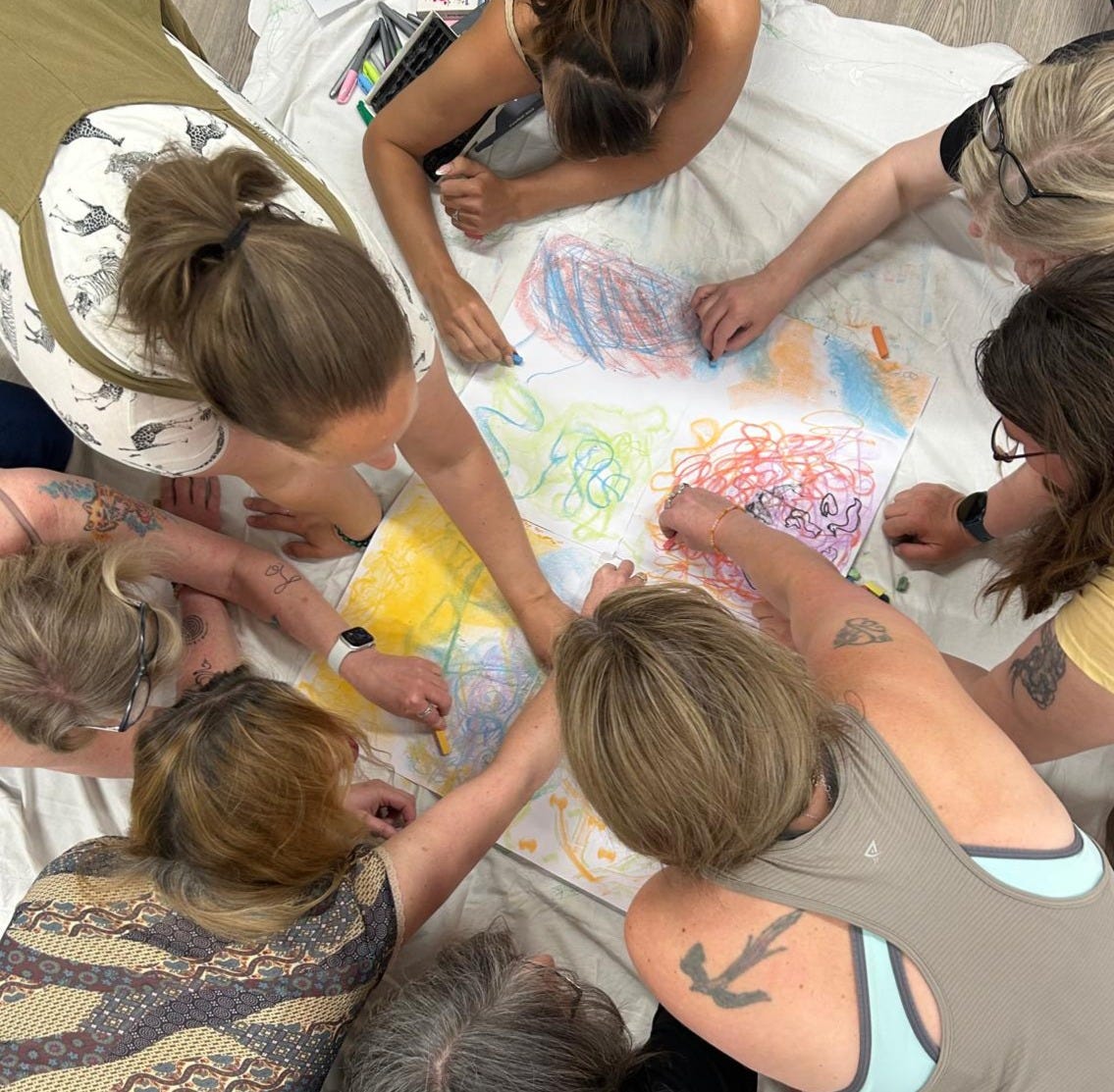If you don’t think that you’re a creative person…
If you don’t think you’re “good” at art…
If you think creativity is childish or frivolous…
… then you’ve been sold a massive LIE!
Don’t worry, you’re not the only one.

Our current society doesn’t want creatives
Creativity is dangerous.
I wrote about this last week:
In summary, art encourages us to empathise with others, it stimulates our imaginations so we can consider other possibilities, and it gives us a voice and a sense of empowerment. Not good for a system that thrives on control.
So it tries to take creative expression away from us.
They start the conditioning as soon as they can get their hands on us in childhood. School curriculums actively restrict creativity. From their beginning of their education, children are taught arbitrary rules that stifle their expression, they’re told to keep busy instead of being allowed to dream and vision, and they’re admonished for playing or experimenting.
School is, most often, about sitting still and passively absorbing. And some subjects might benefit from the learning of rules and parameters, but the creative arts do not. Children need to be encouraged to explore what’s possible and to find their voice and perspective before they’re taught to refine and edit their work.
It’s easy to think that poor teaching or a mistake in the curriculum is to blame, but this is not a mistake. Education is designed this way - to turn us into passive consumers and followers, rather than imaginative thinkers. To keep us colouring well within the lines.
Then, as children grow, the pressure mounts to think about a “sensible” career.
Teachers lecture young people about being able to get a stable job. Parents, usually with the best of intentions, having been terrified by parenting “advice” and societal messages about the dangers of their children not preparing soon enough for a stable future, begin to nudge them towards what they’ve been told will provide security. The “serious” subjects. The careers that have been deemed respectable.
Of course, society wants us to view as “respectable” the jobs that feed the machine. It trains us to aspire to be a cog in its service.
It’s clever, you’ve got to give them that.
Then there’s the mythology that’s been built around creativity. They condition us to think of starving artists, emotionally unstable writers, divinely gifted yet tortured geniuses, and they pull it off without us noticing that it’s stories they’re using to shape our reality. Because it’s creativity, always, that shapes the public consciousness.
They teach us to associate art and play with childishness and femininity, and train us to see both of those things as negative. They make it so that we’re afraid to admit to our creative impulses. They get us to shut ourselves in the creative closet.
They know that this will lead to emotional pain, and that works for them, because then they can sell us solutions that they know won’t work, but that will keep us consuming instead of creating.
Take back your creative power

The truth is, we are all creative beings.
Creativity is a deeply engrained drive within humans. We’ve been making art and telling stories since we arrived on this planet. Human art predates human agriculture and industry by tens of thousands of years - we were creatives way before we were consumers.
Creativity is important to us. We can tell that by how hugely valuable it is to our wellbeing. Not only does it reduce stress and anxiety, lessen depression and lift our mood, but it improves cognitive function, increases problem-solving abilities and strengthens memory. It is good for our balance, motor skills and spatial awareness. It improves blood pressure, heart health, pain management and the immune system.
A system that is actively trying to rob you of all that so that it can profit from your compliance and your suffering is not one to be trusted.
It is time for us all to reclaim our creativity. To stop differentiating between “artists” and “non-artists” and to embrace the artistic impulse within us all.
To stop putting art on a pedestal as something that must either consume us or be set aside, and recognise that there is huge variety in the ways that people can engage with creative practice. Sure, you can dedicate yourself to an artistic career, or you can take 10 minutes a week to doodle or journal. Or you can do one of a billion things in between.
Art is an act of resistance.
Art can be used directly as a method of protest and awareness-raising, and that’s something that I’ll explore more in future posts. But you don’t have to be engaging with political issues to engage with art activism.
Every act of artistic expression is a revolt against a system that seeks to keep you silent.
Every moment that you take to process your thoughts and feelings is a rebellion against a system that wants you to feel stuck.
Every journey into your thoughts and feelings is resistance against a system that wants you to feel powerless.
Every spark of imagination is a moment or rising up against a system that wants to erode all hope.
Even the quietest creations, the smallest expressions, the slowest projects are part of a reshaping of the world.
You are an artist. Your art is power.





This is so relatable Allegra. Everything you’ve written feels so poignant to me right now as I commit to leading with creativity. It feels dangerous(!) but it also feels right. Thank you for so clearly shedding light on why that’s the case.
Hey! I saw your post pop up on my homepage and wanted to show some support. If you get a chance, I’d really appreciate a little love on my latest newsletter too always happy to boost each other!